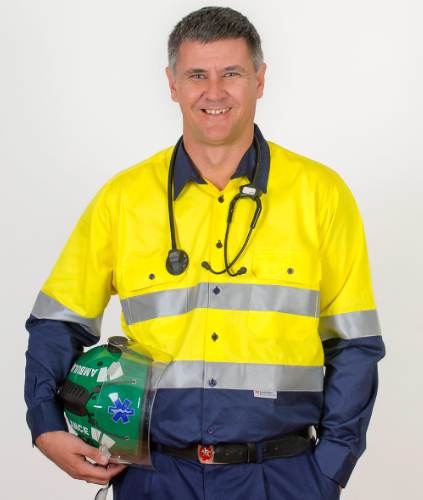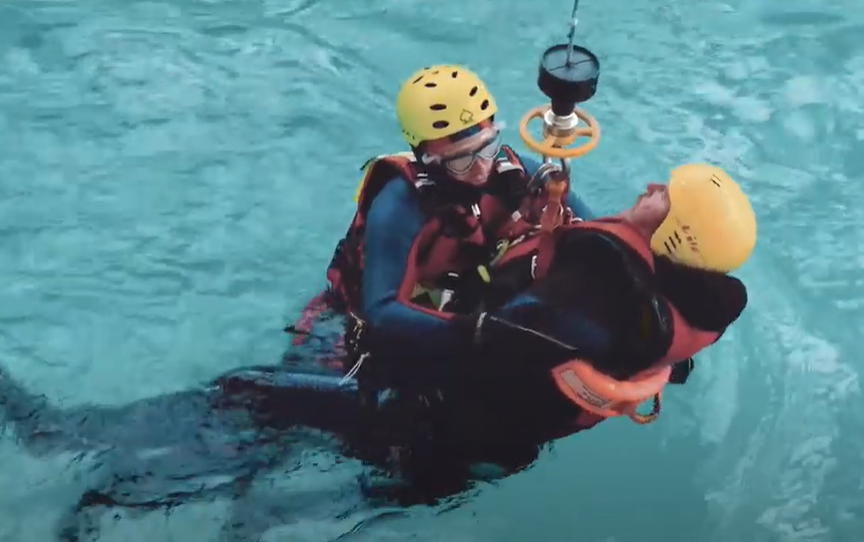Welcome to CEREF, the groundbreaking future training facility designed to revolutionise the way we train our heroes for life-saving missions. Our goal is to provide enthusiastic individuals with opportunities to refine their abilities and increase the talent pool in emergency services. With disaster response training, we can significantly impact the resilience of their communities worldwide.
At CEREF, we are passionate about using the latest technology and innovative teaching methods to create a hands-on, immersive learning experience. Our future state-of-the-art facility offers a range of programs and courses that are tailored to the needs of emergency responders and trainees. From simulated disaster scenarios to realistic rescue operations, our training reflects emergency responders’ challenges in the field.
Troy Cuff is an experienced Emergency Management and Safety Specialist with over 30 years of experience in the field. He has worked as a trainer and safety specialist for some of Australia’s largest mining, oil, and gas companies. Throughout his career, Troy has also volunteered in response to some of Australia’s biggest natural disasters, including firefighting efforts during the fires in Queensland, New South Wales, and Western Australia, as well as flood relief efforts on the Gold Coast and Brisbane.
Having seen the challenges that emergency responders face in the field, Troy is passionate about improving the training and education available to those in the emergency services sector. He has worked with a variety of organisations, including Red Cross, QFES, RFS, QAS, and St John Ambulance, and has recognised a need for more realistic helicopter rescue scenarios, particularly in challenging weather conditions.
Troy’s vision is to create a world-class training and education facility that provides emergency services personnel with the tools they need to excel in their roles and advance their careers. As the founder of CEREF, Troy brings his extensive expertise, passion, and commitment to every aspect of our operations. He is dedicated to ensuring that our clients receive the highest quality of training and education, and that our team of experts is constantly pushing the boundaries of what is possible in the field of emergency response.

Our specialised rescue training course provides intensive, hands-on training in high-risk activities such as HUET/underwater rescue, helicopter winching crew coordination, and operating around hazardous chemicals. Our future on-site training module is designed to give you the knowledge and skills you need to perform rescues in various challenging built and natural environments, including cliffs, embankments, and structures. Whether you’re preparing for a career in emergency services or just looking to expand your skills, our course will provide you with the training you need to succeed.
Natural disasters and man-made events can cause devastating impacts on lives, property, and the environment, and their frequency and intensity are increasing globally. The Asia Pacific region, in particular, is highly vulnerable to climatic disasters, which cause huge human casualties, extensive infrastructure damage, and financial losses. As a result, effective emergency response is critical to minimize the impacts of these occurrences.
CEREF future facility is designed to prepare emergency workers for future natural or man-made disasters. CEREF offers hands-on, realistic emergency scenarios, including rescuing individuals from submerged vehicles, collapsed structures, and airlifting victims under difficult conditions. The training also features a purpose-built pond, on-site accommodation, a hanger, and hoist, enabling students to simulate various wind, rain, and water conditions. With CEREF’s comprehensive emergency response training, emergency workers will be better equipped to handle the challenges of natural and man-made disasters, reducing the impact on human lives and physical damage.
We will be offering a diverse range of courses, including Dive Rescue, Confined Space/Rescue, Certificate III in Emergency Response and Rescue, and Certificate IV in Health Care.
In order to address the safety issue during helicopter training, simulated training using RHT has been proven to be a safer, cost-effective, and eco-friendly alternative to traditional training methods. During the second stage of the CEREF development, three RHT units will be installed.
